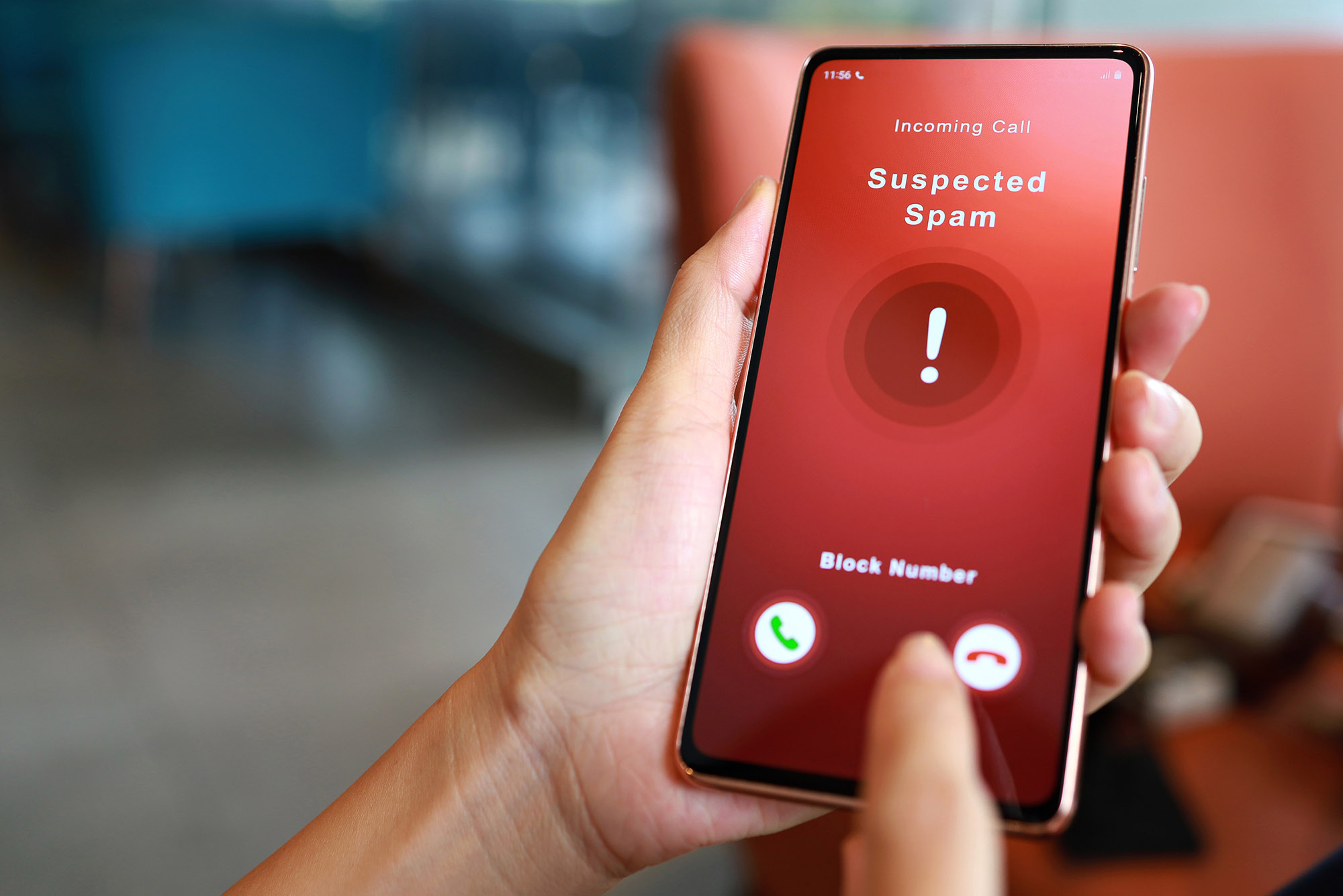A Year of Frauds against Students Prompts a BUPD Warning and Advice
Tips for how to protect yourself from being victimized

The BUPD has tips for protecting yourself against scammers of various stripes. Photo by Thai Liang Lim/iStock
As a New School Year Begins, BUPD Urges Students to Beware of Frauds and Scams
Tips for how to protect yourself from being victimized
Scammers don’t take a summer vacation, according to the Boston University Police Department (BUPD), which investigated two larcenies carried out by fraud during the University’s warm-months break.
They were among 35 such larcenies targeting BU students that the department logged between last September and August of this year. “Some of these scams are phone scams, but not all of them are, as they occur and are carried out through various methods,” says Ryan Menzel, BUPD public safety data analyst.
About a third of the 35 incidents involved individuals impersonating foreign or domestic government agents or police; in 6 of those cases, the thief pretended to be a Chinese official, according to data collected by Menzel. A separate incident this summer involved a scammer collecting money for a phony apartment listing.
“The BUPD wants to remind our community that if they are contacted by unknown persons by text, email, or telephone, consider the possibility that a fraud may be occurring,” says Daniel Healy, administrative lieutenant for safety, security, and preparedness and deputy chief. “Government officials will never demand money to resolve such issues.
“As students begin to arrive back on campus, the BUPD wants to raise awareness about frauds and give some information that may help students avoid falling victim to them.”
Government officials will never demand money to resolve such issues.
The BUPD offers a primer about fraud in this student guide, which covers a variety of scams, as well as giving fraud prevention tips. Among them: never pay for merchandise online or by phone using a debit card, know who you are paying via person-to-person payments, and don’t assume an email or phone call is authentic just because the caller knows your basic information (name, address, date of birth).
In addition, the department offers the following protection tips courtesy of the Federal Trade Commission:
Block unwanted calls and text messages.
“Take steps to block unwanted calls and to filter unwanted text messages.”
Don’t give your personal or financial information in response to a request that you didn’t expect.
“Honest organizations won’t call, email, or text to ask for your personal information, like your Social Security, bank account, or credit card numbers.
“If you get an email or text message from a company you do business with and you think it’s real, it’s still best not to click on any links. Instead, contact them using a website you know is trustworthy. Or look up their phone number. Don’t call a number they gave you or the number from your caller ID.”
Resist the pressure to act immediately.
“Honest businesses will give you time to make a decision. Anyone who pressures you to pay or give them your personal information is a scammer.”
Know how scammers tell you to pay.
“Never pay someone who insists you pay with cryptocurrency, a wire transfer service like Western Union or MoneyGram, a payment app, or a gift card. And never deposit a check and send money back to someone.”
Stop, and talk to someone you trust.
“Before you do anything else, tell someone—a friend, a family member, a neighbor—what happened. Talking about it could help you realize it’s a scam.”
Contact the BUPD at 617-353-2121.

Comments & Discussion
Boston University moderates comments to facilitate an informed, substantive, civil conversation. Abusive, profane, self-promotional, misleading, incoherent or off-topic comments will be rejected. Moderators are staffed during regular business hours (EST) and can only accept comments written in English. Statistics or facts must include a citation or a link to the citation.